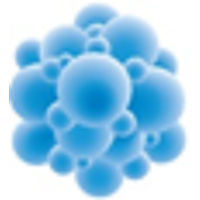A California judge yesterday sided with a stem cell clinic chain against the FDA, setting shock waves through the agency as it potentially has to rework how it enforces these clinics moving forward.
Judge Jesus Bernal ruled in federal court in California’s Central District against the FDA’s argument that a group of stem cell clinics called the Cell Surgical Network, led by Mark Berman and Elliot Lander, were selling unapproved drug products in the form of adipose, or fat, cell mixtures.
The judge found that the government has not met its burden of establishing standing to pursue injunctive relief regarding the fat-based treatments because Berman and Lander stopped performing the treatment by June 2017, which was before the lawsuit began and before the treatment was seized.
But Judge Bernal also found that neither the “stromal vascular fraction” surgical procedure nor the expanded mesenchymal stem cell procedure is drugs, and that the SSP Exception, which exempts from FDA oversight any establishment that just removes cells, tissues, and cellular and tissue-based products from an individual and implants them into the same individual during the same surgical procedure, “unambiguously applies to the SVF Surgical Procedure.”
The origins of the case stem from Lander and Berman’s decision to combine SVF cells with ACAM2000, a federally regulated smallpox vaccine that is part of the US’s strategic national stockpile but is not being used for the current monkeypox outbreak partly due to its side effects.
According to the judgment, the two doctors worked with California biotech StemImmune to investigate combining the two. In August of 2017, the FDA confiscated vials of ACAM2000 from StemImmune’s labs at UC San Diego.
But the ruling stopped short of awarding defendants’ attorney fees as it said the US government had a “reasonable basis to commence suit.”
Judge Bernal noted that under the FDCA, the difference between a drug and procedure becomes less clear-cut when a “licensed medical doctors enter a patient’s body, extract that patient’s cells, and reintroduce those cells to that patient after some amount of cellular processing.”
“The United States argues that this scenario constitutes the production of FDCA drugs. Defendants argue that this is mere surgery, the exclusive province of the medical practitioners, and not something which the FDCA may regulate. The Court concludes that neither Defendants’ SVF Surgical Procedure nor its Expanded MSC Procedure are ‘drugs’ within the meaning of the FDCA,” Bernal added.
Bernal also chided the government’s witness, FDA associate director of policy Carolyn Yong out of CBER on another occasion. As he noted:
The Court finds Defendants’ evidence and testimony more credible than Dr. Yong given her failure to analyze the appropriate enzyme. Further, Defendants have actually tested the product at issue (as published in a peer-reviewed journal), while the Government has never collected a sample or tested the SVF Cells or Liberase.
As for the SVF/ACAM2000 treatment, while it constitutes the manufacture of a drug, Bernal said that the government cannot establish standing, since both doctors last did the treatment before the FDA seized the vials of ACAM2000 from StemImmune, and ACAM2000 is “otherwise inaccessible to defendants.”







